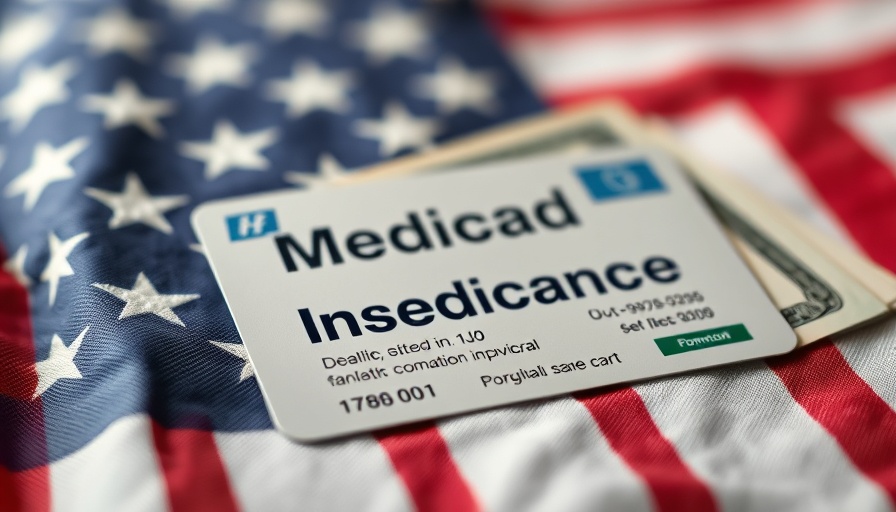
The Stakes Are High: Potential Medicaid Cuts Explained
As discussions surrounding Medicaid reform intensify, the stakes have never been higher for millions of Americans who rely on this crucial safety-net program. According to a recent Congressional Budget Office (CBO) report, proposed changes by Republican lawmakers could lead to significant coverage losses. Potential alterations to federal support for Medicaid expansion would not only impact finances at the federal level but could also directly threaten healthcare access for millions.
Why Are Cuts Being Considered?
With a recent budget resolution in Congress looking to save an astonishing $880 billion, the urgency to slash expenses in critical areas like healthcare is escalating. This budgetary pressure often overlooks the human cost of such decisions. By proposing policies that reduce federal contributions to Medicaid, lawmakers hope to alleviate the deficit while simultaneously jeopardizing the coverage that millions cherish. This dilemma raises an essential question: Is fiscal responsibility worth the toll on public health?
The CBO's Sobering Predictions
The CBO's analysis highlights two alarming potential changes. First, reducing the federal share of Medicaid expansion costs could strip 5.5 million people from this health program by 2034, pushing about 2.4 million into the ranks of the uninsured. On a second front, instituting spending caps per enrollee could result in a staggering 5.8 million losing coverage entirely. For many, these numbers translate into lost access to necessary healthcare services, exacerbating existing health disparities.
Political Pushback: A Divided House
Within the political arena, not all Republican legislators support drastic Medicaid cuts. Some argue that by targeting fraud, waste, and abuse, it’s possible to maintain healthcare provisions for the most vulnerable populations. Yet, as Rep. Frank Pallone Jr. and Sen. Ron Wyden have emphasized, cutting Medicaid funds while portraying these changes as protective measures is misleading. The resulting benefits derived from such policies undoubtedly come with significant risks and losses for many Americans.
Future of Medicaid: Voices from the Community
Community health centers and advocacy groups are already voicing concerns regarding the upcoming legislation's impact on public health. For many, Medicaid is not just a program, but a lifeline that ensures access to doctors, medications, and essential treatments. The threat of coverage loss resonates intimately within communities nationwide, raising fears of increased health crises without proper medical support.
Looking Ahead: Implications for Health and Wellness
With potential Medicaid reforms looming, discussions are also emerging around community health and wellness services. Should these cuts occur, not only will millions face loss of coverage, but community-based health initiatives may also see diminished resources. Ensuring the accessibility of health services will remain vital for fostering optimal health and wellness across various demographics.
Call to Action: Getting Involved in Policy Discussions
As the political landscape shifts, it’s crucial for individuals to engage in discussions surrounding healthcare policies. Communities should advocate for the preservation of Medicaid, emphasizing its value in safeguarding health and wellness for generations to come. Attend health and wellness events, collaborate with community leaders, and ensure that your voice is heard in the conversation. The future of Medicaid impact us all.
 Add Row
Add Row  Add
Add 




 Add Row
Add Row  Add
Add 


Write A Comment